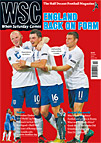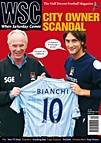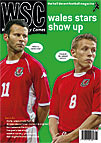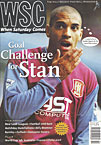 James Calder recalls a time when the Colombian championship was dominated by well-paid foreign players
James Calder recalls a time when the Colombian championship was dominated by well-paid foreign players
The long-term significance
The beginning of the end of El Dorado, the great Colombian gold rush. Blacklisted by FIFA following its foundation in 1948, the national professional league attracted some of the world’s leading players, lured by high wages funded by the country’s economic boom, massive attendances and a conservative government anxious to divert attention away from widespread and bloody political and social unrest.
Angered by the continuing exodus of its stars, the Argentinian FA complained of “piracy”, leading FIFA to expel Colombia in 1951. The dispute was ended shortly afterwards by the Pacto de Lima, an agreement by which an increasingly cash-strapped league agreed to let its well-paid imports return to their clubs of origin by October 15, 1954, in return for readmission to the international fold. The Colombian free-for-all also had an impact on the English game, the defection of a handful of players resulting in two sizeable increases in the maximum wage, which was eventually abolished in 1961.


